Kai has become one of Korea’s most renowned musical actors through his outstanding singing voice and acting ability, as well as his intimate understanding of the characters he embodies. Since his debut in 2008, he has become known for delivering outstanding performances in such major productions as “Phantom,” “Ben-Hur,” “Frankenstein” and “Les Misérables.” What brought him to where he is today? Kai said his passion, and his goal, is to be himself on stage.
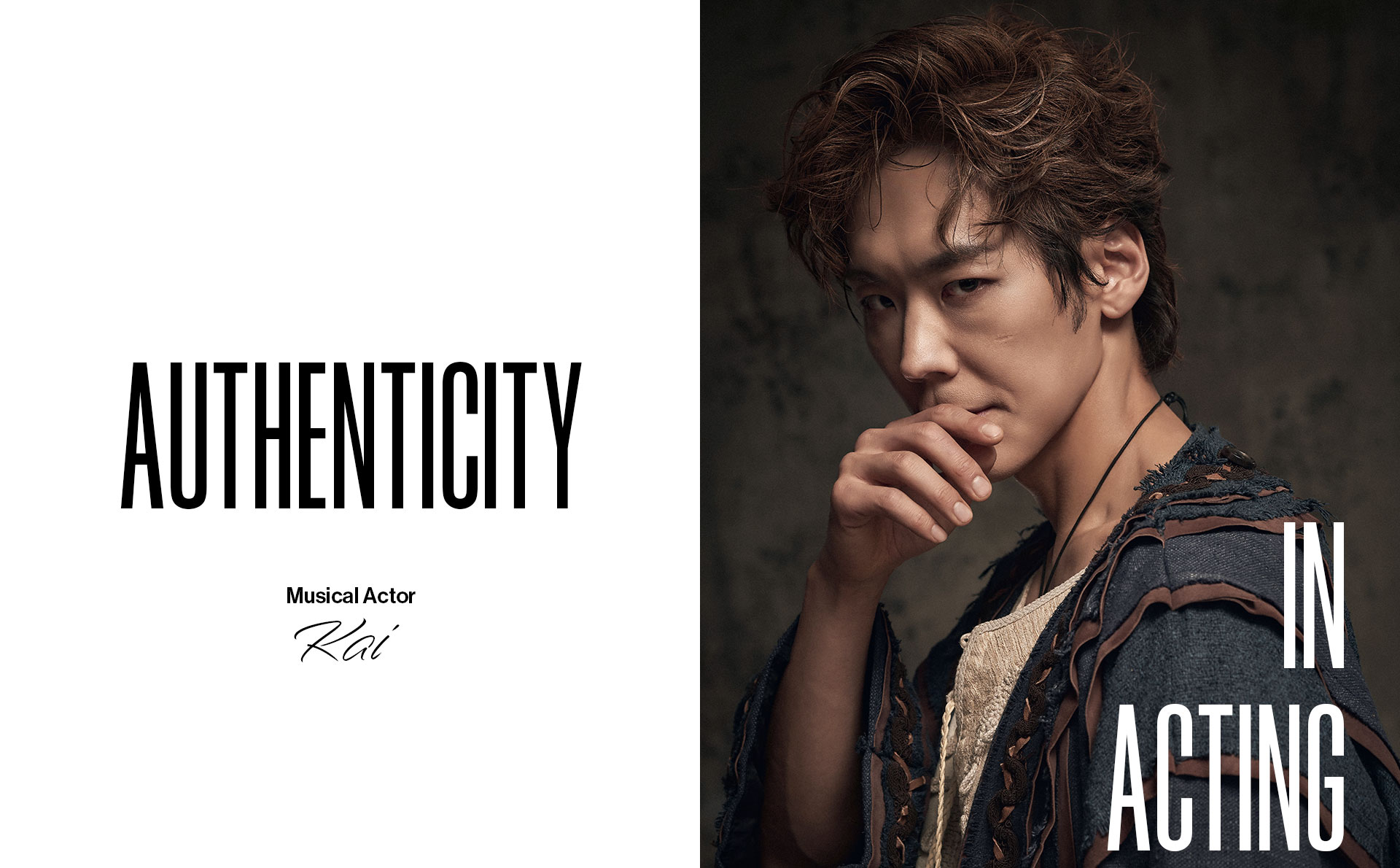
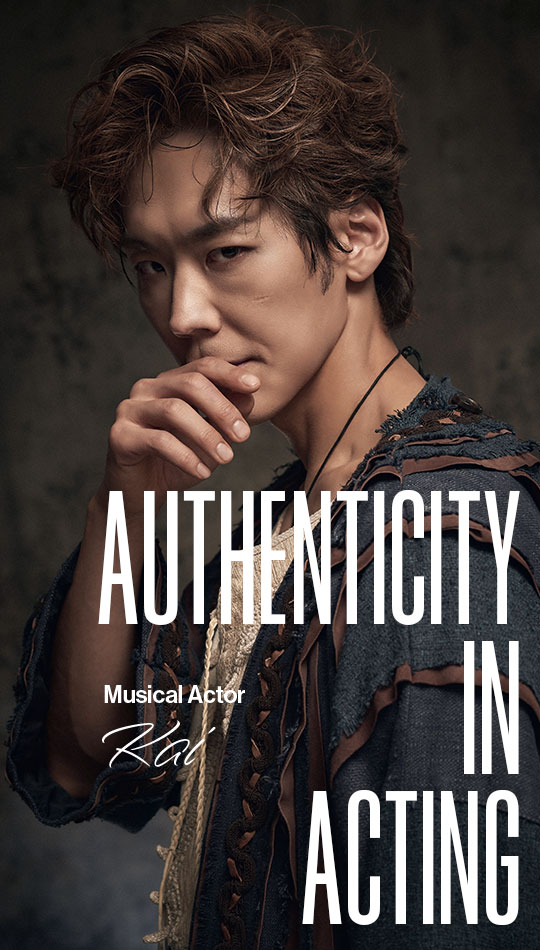
Writer.
Sung Ji Yeon
Photos courtesy of.
EMK Musical Company
Born for the Stage
Jung Ki-yeol (better known by his stage name of Kai) was basically destined to sing on stage. Under the tutelage of his mother, a music teacher, he encountered the vast potential of music at an early age. He followed his heart by choosing a career in vocal performance, but that didn’t prove to be easy. He developed a cyst in his throat that forced him to stop singing for a while. That was when he became fascinated with musicals. “I learned about musicals during my military service. I’d always thought that good singing meant accurately performing notes on a page. But the singing in the musical was emotional―it felt different. That’s how I began dreaming of becoming a musical actor.”
Kai debuted in the world of musicals in 2008 with “Singin’ in the Rain” and gained recognition through roles in “A Tale of Two Cities” and “Dracula.” With his velvet voice and acting skills, he secured starring roles in major productions like “Phantom,” “Frankenstein,” and “Jekyll & Hyde,” becoming one of Korea’s most renowned musical actors.
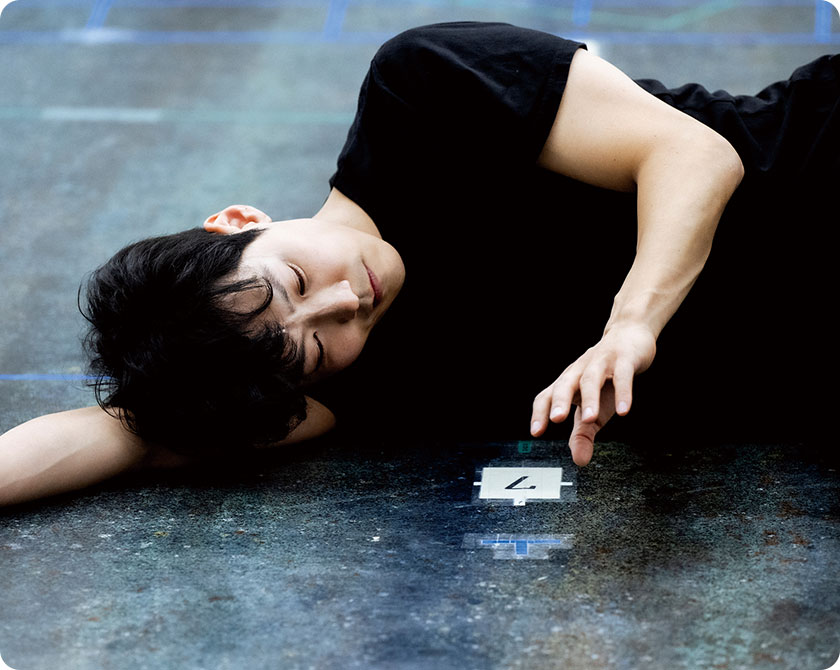 Kai practices his role in ‘Frankenstein.’
Kai practices his role in ‘Frankenstein.’ 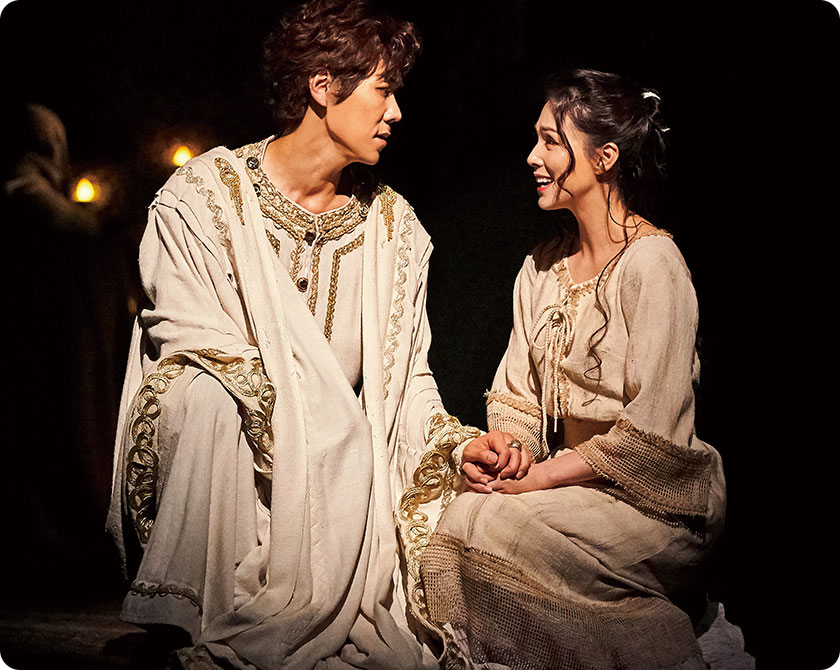 Kai plays Judah Ben-Hur in ‘Ben-Hur.’
Kai plays Judah Ben-Hur in ‘Ben-Hur.’ To Be the Character,
Be Yourself
Of course, Kai faced many challenges on his path to fame. The first obstacle he encountered in musicals was prejudice. While his vocal background posed no technical challenges, many viewed him as just a “former vocal performer.”
“I enjoyed learning and improving, but people made assumptions about me. They’d say I didn’t have the right vocal techniques for musicals because I majored in voice or that acting must be harder for me,” Kai said.
Determined to prove his studies didn’t limit him, Kai even mimicked others to cover perceived weaknesses. “There was much nastiness back then,” he recalls. Now, with more acting experience, he’s less concerned with others’ opinions and more focused on capturing the essence of the musical and fulfilling his duties as an actor.
The biggest factor behind that shift was the musical “Ben-Hur.” Kai played Judah Ben-Hur, the main character of the musical, who spends 17 years in slavery on a Roman galley. “I wanted to become Ben-Hur the slave. I constantly thought about his emotions. In an attempt to get as close to the character as possible, I lost weight until my trainer told me to stop. Plus, director Wang Yong-bum placed his complete trust in me during that production. That made it possible to free myself from the bonds of rules and regulations.”
That was a period of immense growth for Kai. He was learning to balance expressing himself with preserving the musical’s message. He explored how to embody his character fully, sometimes sharing ideas with producers. “While rehearsing, I convinced myself I was the character. But thorny questions arise. Should I adjust my acting to make the performance more appealing to the audience? Or should I avoid that because it might undermine the musical’s essence? There’s no right answer. But I know for sure that I have to follow the course that feels right to me,” he said.
There’s a phrase Kai uses to describe fully embodying a character that only he can portray on stage. He describes that as “being myself.” On stage, he does his best to express all his thoughts and discoveries about the character. That’s how he narrows the distance between his character and himself while putting on an inimitable acting performance. Despite his teachings, Kai says he’s still scared of “being myself” on stage because his judgment is sometimes wrong or misguided. Kai is always trying out new things with the hope of overcoming that fear. “I’d like to try my hand at theater. Plays and musicals are essentially the same, but since drama is on a smaller stage, you basically have to lay everything bare before the audience. In a sense, that forces you to push yourself to the limit,” he said.
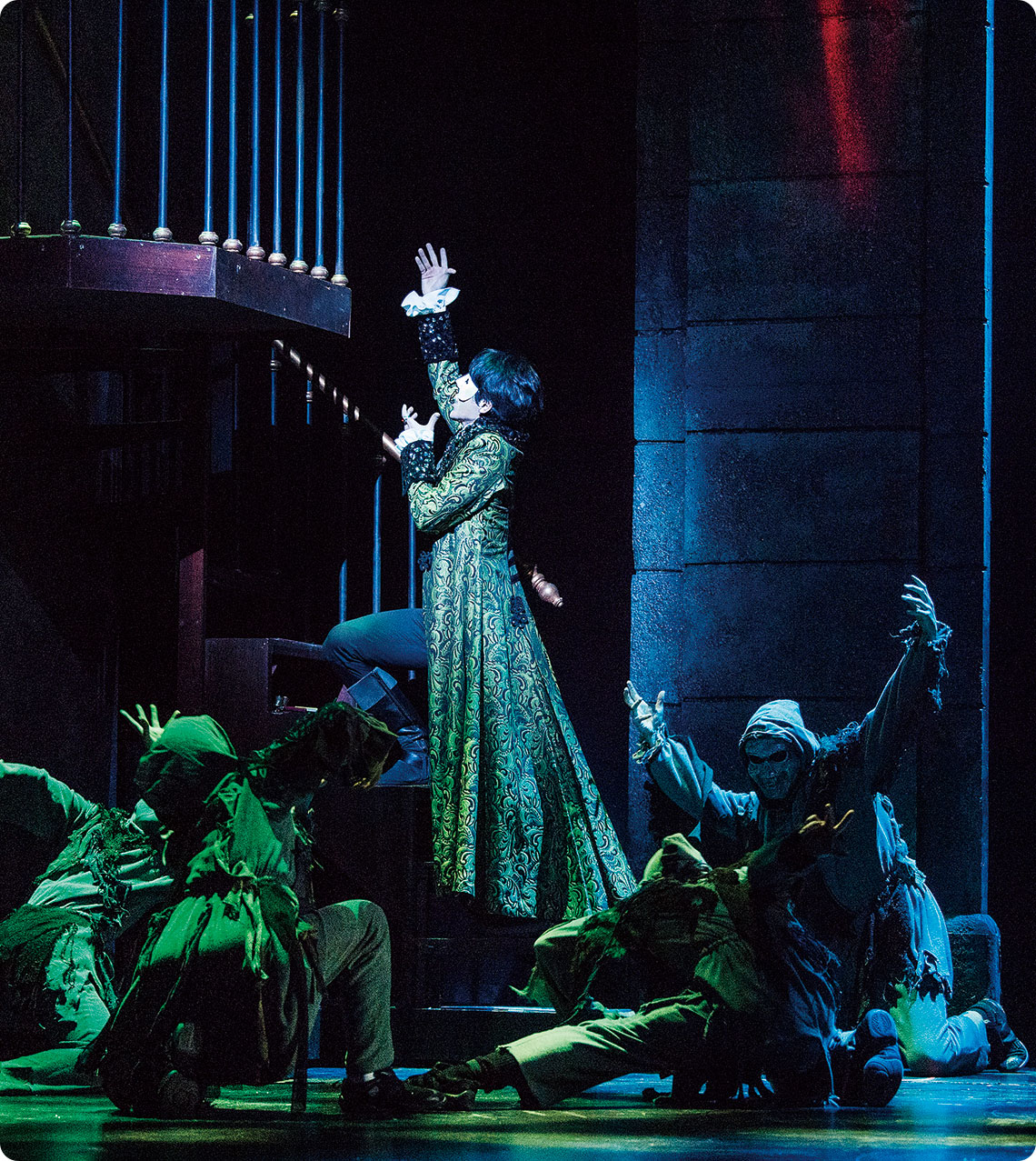 Kai performs as the lead character in ‘Phantom.’
Kai performs as the lead character in ‘Phantom.’
Authenticity as an Actor
Why does Kai keep taking the stage if it requires so much work? Simply put, it’s fun. Not mindless fun, or painless fun, mind you, but the bliss that comes from digging down through anger, annoyance and exasperation until you unearth something meaningful.
“I work to create moments of fun. If my only goal were merely to reach the curtain call, every other moment would feel exhausting. So, even when repeating the same dialogue or rehearsing the same scenes, I try to shift my gaze or position each time. When the stage I’ve crafted with that joy resonates with the audience, I hope they’ll remember me as ‘someone who pursued the truth.’ Viewers may never meet the real Hamlet, but I want my Hamlet to feel like the real one,” Kai said.
I became curious about what Kai means by “express one’s true nature while becoming a character with completely different experiences.” Should the actor tailor himself to the character, or should the character be tailored to the actor? After listening to Kai’s story, I felt that making such a distinction might not be necessary. Either way, I can’t help but look forward to encountering something genuine that exists only in the magical moment when Kai is performing.
